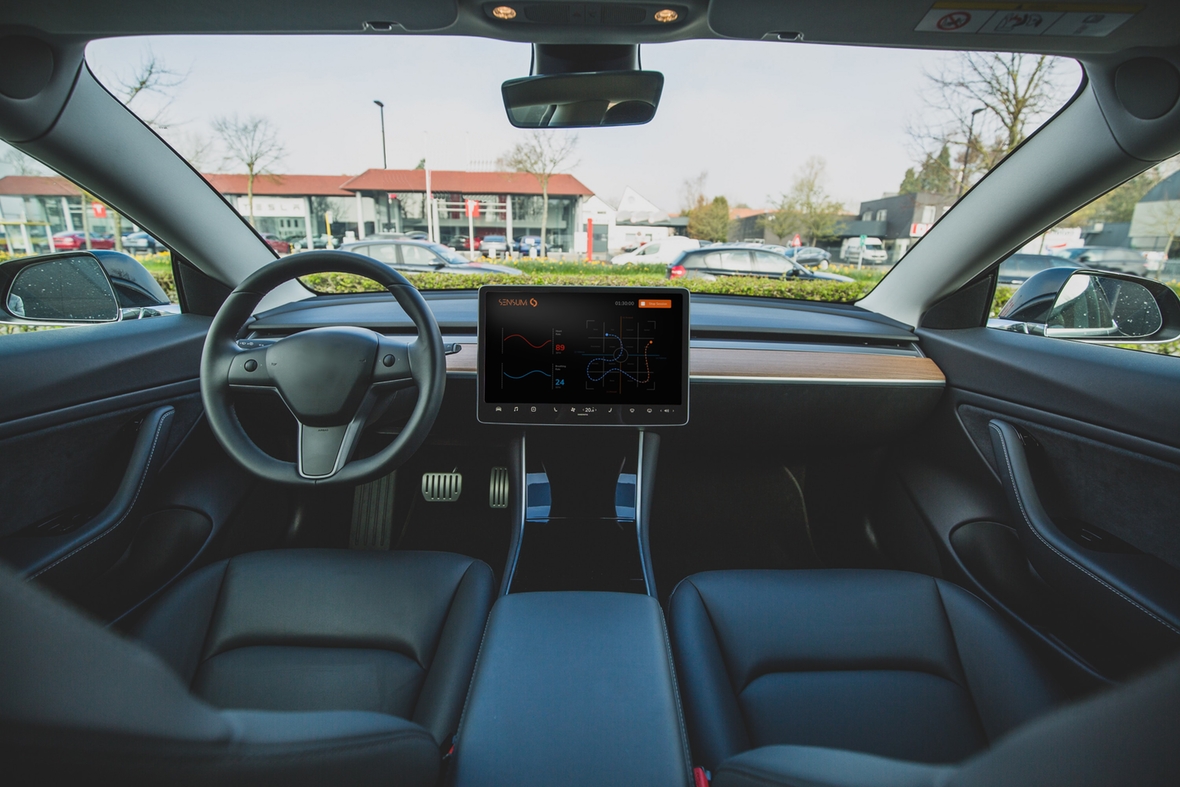
24 Sep Sensum launches empathic tech toolkit for in-cabin safety, services and personalisation at IAA Frankfurt
A decade of empathic technology knowledge deployed in a box to accelerate automotive innovation
Clarendon portfolio company Sensum launches the SynsisTM Empathic Technology Developer Kit, the world’s first sensor-fusion kit for measuring real-time human states from body, face and voice data combined. Synsis equips automotive OEMs, tier one suppliers and simulator companies with a single solution to research and rapidly prototype a new generation of personalised in-cabin solutions. After several years of engineering custom solutions for the automotive industry Sensum is now packaging its technology and algorithms for customers to purchase and operate. Synsis is designed to speed up research and development for products that can measure and respond to human feelings. This new wave of empathic technology promises enhancements in safety, comfort and services.
For digital technology to interact with humans in smarter and more personal ways it needs to understand how they are feeling. Human data measurement from in-cabin sensors can result in greater road safety by identifying driver distraction or the onset of fatigue. Distracted driving accounts for at least one in ten fatal accidents, while fatigue may contribute to one in five road accidents. As well as safety benefits, empathic vehicle technology will also provide personalised entertainment, comfort and digital services.
Over the last decade the automotive industry has been transformed by huge leaps in technology such as electrification of vehicles, and assisted driving technologies. New connected car platforms and advances in telecommunications infrastructure such as 5G offer opportunities for safety and personalisation in fleet, commercial and personal vehicles, as the automotive industry searches for new business models.
With Synsis, customers will be able to start analysing human states immediately, and build empathic features within the vehicle that respond to these states. This new kind of interaction can be operated through any programmable component of the vehicle, such as the infotainment system, environment controls, or advanced driver assistance systems. These in-cabin solutions could be differentiators for automotive brands searching for new ways to attract customers, as noisy engines, manual driving and vehicle ownership are replaced with electrification, automation and ride sharing.
Gawain Morrison, CEO & Co-Founder, Sensum comments: “Human data will become the most important asset in the next generation of in-cabin products and services. Companies need to put in the data miles now to build customised models, and a solution like ours is the only way to get true data in the real places where people live their lives.”
The challenges of data synchronisation, human state labelling, ground truth data collection, and simultaneous processing of multiple human data streams have been problems that Sensum has solved over a decade of operations. This in-the-wild knowledge of research and product development is now being deployed in the Synsis Developer Kit, helping to speed up the research and prototyping of human-reactive products, whether that’s in VR, the simulator, on the road or the racetrack.
User experience designers and researchers can now collect human data in the wild, to gather data from a wide range of sensors for body, face & voice data, and context data can be integrated from almost any source. Sensum’s patent-pending sensor-fusion solution brings all human data streams into one place synchronised, tagged for events, and ready for analysis.
Engineers can build human-reactive prototypes using Sensum’s scientifically validated human state models, which provide a comprehensive model of the human user across a wide range of emotions and other cognitive & physiological states. They can then trigger product features based on the user’s current state, to test and build products that respond empathically, for richer, more personalised human-machine interaction.
As a European company operating under GDPR, Sensum has always taken a strong stance on data privacy and human rights across all of its processes, from data collection, to the design of human state models, addressing issues such as potential algorithmic bias in consultation with its customers. This ethos brought Sensum and the Institute of Electrical and Electronics Engineers (IEEE) together to initiate a working group to develop a new global ethics standard for empathic technology. The P7014 Standard for Ethical considerations in Emulated Empathy in Autonomous and Intelligent Systems is the latest addition to the IEEE’s P7000 series of standards in development, all focused on different aspects of the ethics of autonomous and intelligent systems. The group is open to anyone and Sensum encourages interested parties to join, to help shape the future of this new field of technology.



